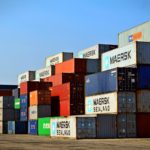Focus on ASEAN – Laos and Indonesia

Continuing our series on Australian mid-sized market opportunities in ASEAN, we analyse the contrasting nations of Laos and Indonesia.
Indonesia
Indonesia is one of the largest economies in ASEAN. It is Australia’s 13th largest trading partner, the 16th largest economy in the world and is expected to keep growing strongly. Indeed, some estimates predict it will be the world’s 4th largest individual economy by 2050.
Indonesia is urbanising rapidly. Over 30 million people live in the greater Jakarta metropolitan area alone, more than the whole of Australia. Tens of millions of Indonesians are likely to join the middle class in the next five years, driving growth across Indonesia’s 17,000 islands.
Rapid growth in internet access and the eager uptake in smartphone ownership is allowing government, business and consumers to take advantage of new digital technologies and opportunities. However the regulatory environment for imports, especially finished goods, can be complex and changeable. Several sectors remain fully or partially closed to foreign investment and domestic rules can constrain the ability of foreign professionals from working in Indonesia.
Despite these challenges, Australian exports to Indonesia continue to grow. An increasing number of Australian firms are looking for opportunities in what’s likely to become one of the largest markets not only in the region, but the world. Given the complementarity of our economies and our geographical proximity, Australian business is well placed to help Indonesia to achieve its growth goals.
Indonesia is urbanising at one of the fastest rates globally. By 2025, 68 per cent of all Indonesians – – 194 million people – are predicted to be living in cities, putting pressure on urban liveability. This will create opportunities as Indonesian citizens aspire to better quality of life and urban amenity.
Indonesia’s significant growth in internet access together with the uptake in smartphone ownership is enabling government, business and consumers to take advantage of new digital technologies and opportunities.
There are more active SIM cards than people in Indonesia, a testament to the country’s rapid digital transformation. The Indonesian fintech sector has expanded rapidly, from a handful of companies two years ago to over 140 today. Go-Jek, one of the country’s home-grown ‘unicorns,’ has evolved from a motorcycle taxi booking app to a platform offering cashless payment and a wide range of other e-services.
The relatively open regulatory framework governing fintech, compared with to its heavily regulated banking sector, may offer opportunities for Australian firms, but a swathe of opportunities in traditional sectors will also attract Australian attention.
The Indonesian Government is committed to expanding economic activity and reducing income inequality across the archipelago. President Widodo’s connectivity agenda prioritises go well beyond the digital realm to include significant spending on maritime, aviation and transport to connect the nation’s islands and rural regions to major cities.
Eastern Indonesia is a particular focus of the Government’s economic policies. The Government plans to develop ‘10 new Balis’ across rural and regional areas to provide employment and economic growth, and is actively courting foreign tourism investors, developers and service providers.
Exports of agricultural products, including – controversially – live cattle, frozen beef, sugar and wheat, continue to represent a large part of Australia’s exports to Indonesia. There’s also growing demand for food ingredients and innovative technologies for Indonesia’s substantial local food processing sector.
The Indonesian Government has made workforce training a top priority for the next five years to boost productivity. 45 per cent of Indonesians are underqualified for their job and Australian education and training providers are well placed to help address Indonesia’s skills development.
It is also looking to improve educational access and standards in its schools, opening opportunities for Australia’s many education providers. At the moment, only half of the adult population completed primary education and just 15 per cent have a tertiary qualification. There will also be opportunities for Australian online health as well as education and training services as smartphone penetration continues to grow alongside the Indonesian middle class and worker upskilling programs are rolled out.
Australia’s strengths in resources and energy offer important opportunities, as Indonesia continues to be an important player in the global mining scene. It has significant reserves of coal, copper, gold, tin and nickel while mining, oil and gas combined contribute around 10 per cent of Indonesia’s GDP.
There are therefore significant coal and mineral mining prospects in Indonesia, although significant regulatory and taxation challenges remain. Indonesia is a main export destination for the Australian mining equipment, technology and services sector and these opportunities should only increase in the future.
Laos
Although still small in scale, Laos has recently emerged as one of the world’s fastest growing economies, with GDP growth averaging seven to eight per cent over the past decade. The Lao Government has an ambitious agenda for the country to graduate from the list of Least Developed Countries by 2020.
However, Laos remains a challenge for Australian businesses due to a less conducive regulatory environment. Australia therefore has a modest trade and investment relationship with Laos, although Australian businesses operate in mining, plantation forestry, banking, tourism, and legal services.
The Lao Government is committed to improving the business environment and elevating its trade relationship with Australia and opportunities for Australian companies include resources, mining, agriculture and education.
There are opportunities to provide high quality consulting services on social and environmental impact, for example, as well as the supply of mining equipment and technology, engineering services and training services. A quality new mining law, currently under revision, would pave the way for the Lao Government to lift its moratorium on new exploration licences, and open up investment opportunities.
In terms of agribusiness, Australia and Laos have collaborated on technical and agribusiness research to improve food security and farming systems, and develop domestic and export market opportunities for rice, cattle and other agricultural products. Opportunities exist to invest in the agriculture and plantation forestry sectors, particularly agricultural services.
The private education market in Laos is small but growing and, as with other countries in ASEAN, Australia is a favoured destination for Lao students studying abroad.
For more information, see the ASEAN Now report from Australia Unlimited from which this data was derived.








